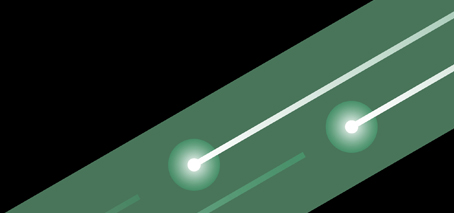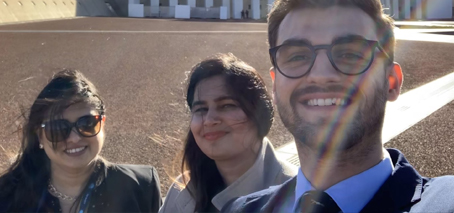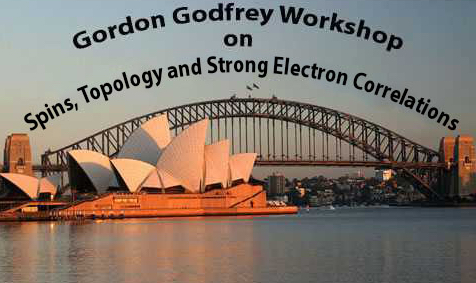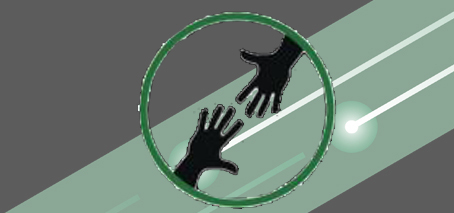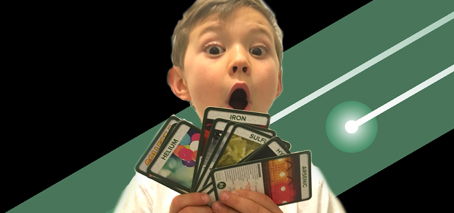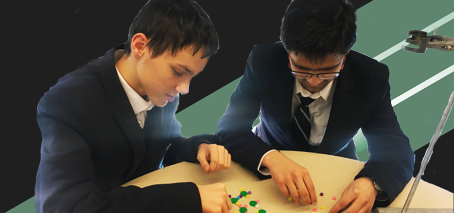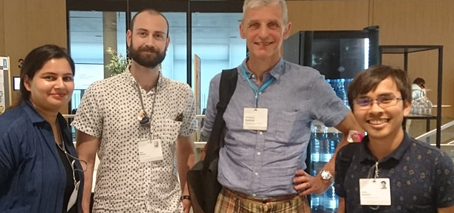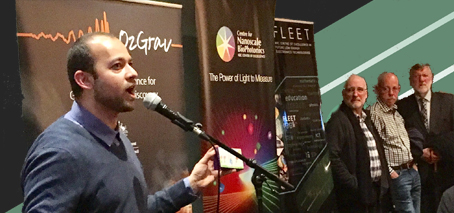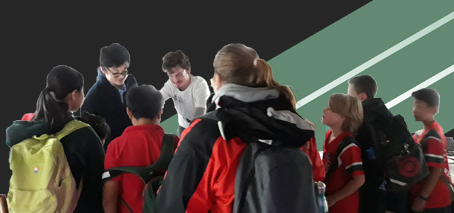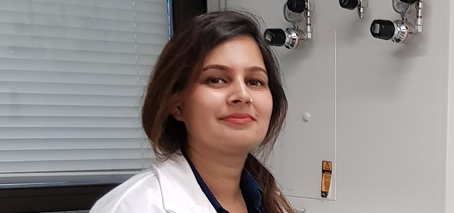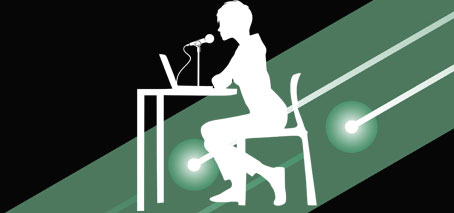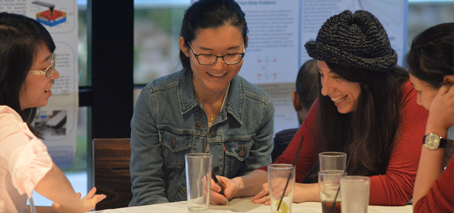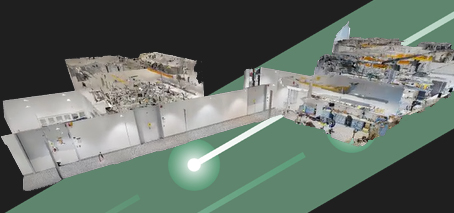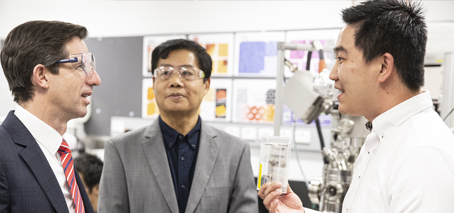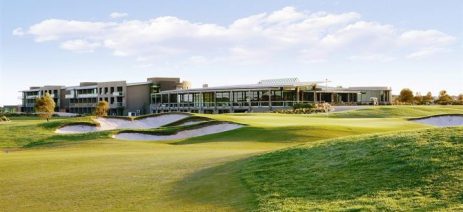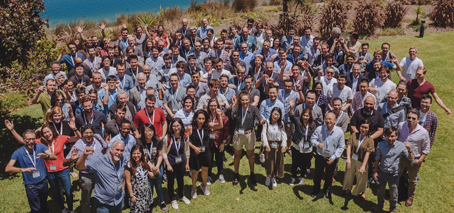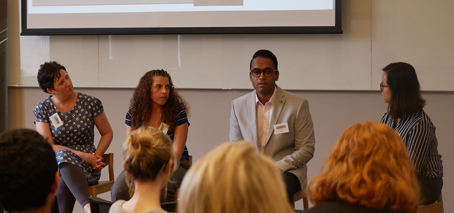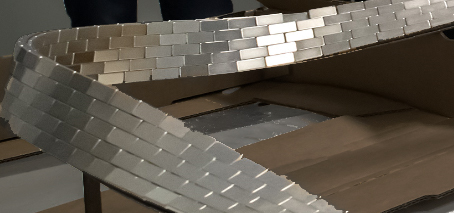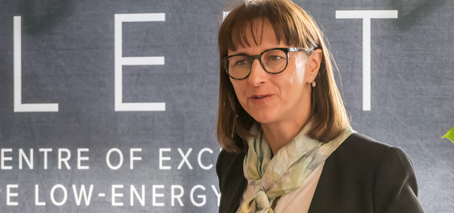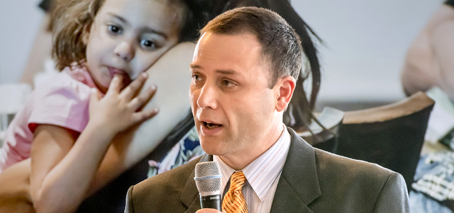First research workshop organised by early-career researchers (ECRs) and students Cross-node publications increased by 18% (from 7 to 11 ) Four FLEET-wide, live-streamed seminars run in 2019 (target 10) New $50,000 grant created for collaborative projects with partner MacDiarmid Institute New $20,000 funding pool established for ECR collaborative grants with partner organisations Christmas in July social event, Melbourne nodes 30 …
Extending FLEET’s engagement with school students
In 2019, FLEET cemented its relationship with Monash Tech School continuing to be involved as the school ramped up its activity. FLEET’s fruitful partnership with Monash Tech School features lab tours that provide hands-on science experiences for participating secondary students. From May to December, FLEET provided lab tours and activities on an almost weekly basis for Year 8 students from …
Collaborating 2019
FLEET continues to build links with other science organisations within Australia to further the reach of science, advance equity issues and develop future leaders, for example: Sponsoring childcare at the annual Science Meets Parliament, with Science and Technology Australia (STA) Running pitch training with two other ARC Centres of Excellence Co-sponsoring Physics in the Pub with three ARC Centres of …
Three of FLEET’s future science leaders engaging with policy-makers
FLEET had a team of three researchers at Science meets Parliament (SMP) in November, talking to parliamentarians and other scientists from around the country, and perfecting the art of pitching to politicians. FLEET’s gun team were: Hareem Khan (RMIT), Oliver Stockdale (UQ) and Semonti Bhattacharyya (Monash). Science Meets Parliament is an annual meeting of Australia’s policy-makers with leading and emerging …
Gordon Godfrey Workshop advances Australian quantum physics
Almost 120 researchers gathered in UNSW last week to discuss spin and strong-electron correlations in the university’s biennial Gordon Godfrey Workshop. The 2019 Gordon Godfrey Workshop on Spins and Strong Correlations was held at UNSW’s School of Physics for five days from 25 to 29 November. The Gordon Godfrey Workshops, which have been running since 1991, provide a forum for Australian and international researchers to exchange ideas and …
Developing future scientific leaders
FLEET tops up external funding to build leadership skills Two of FLEET’s six strategic priorities are developing the next generation of science leaders, and fostering equity and diversity in STEM. Establishing career support initiatives for women in FLEET is an important milestone towards achieving each of these goals. FLEET will provide an environment for our early-career women to thrive and …
Discussing future science with future scientists (Queensland)
FLEET’s Matt Davis (node leader University of Queensland) discussed the future of science with some of Australia’s future scientists this month at Ipswich State High School, with local MP Shayne Neumann and James Rasmussen of Origin Energy.
Future electronics and theoretical physics: Sam Bladwell interviewed
FLEET’s Sam Bladwell (UNSW) was recently interviewed by Ian Woolf on Diffusion Radio, discussing the ICT energy issue that drives FLEET’s research as well as his own theoretical studies into spin. Listen to: Future low-energy electronics Battling jetlag, Sam describes spintronics and the need for low-energy electronics (from 6:35min) Spins and valleys Sam describes how his theoretical studies dovetail with …
FLEET/UNSW scientists sharing their passion for science: Science outreach in August
—by Cecilia Bloise, Node Coordinator, UNSW There’s nothing like a strong dosage of outreach to get the ‘cats out of the box’ into the public sphere. The FLEET Centre of Excellence invests significant resources into science-outreach, aimed to inspire stronger engagement with science across all levels of the community, from primary and secondary school students to the broader population. Beyond …
Introducing future electronics at secondary-school level
FLEET is currently helping to run a Year 10 ‘Future electronics’ course in partnership with John Monash Science School, Victoria. As well as covering the history of semiconductors and computing, and introducing students to Moore’s Law, the course will also be most students’ first introduction to quantum science, and will be Australia’s first introduction to superfluids and topological materials at …
Lindau report
Three FLEET ECRs were fortunate to attend the 69th Nobel laureate meeting in Lindau, Germany, forming an impressive 30% of Australia’s ten-person delegation elected and led by the Australian Academy of Science. This year’s meeting focused on physics, and a number of senior FLEET were amongst the laureates. Our ECRs were pleased to connect with Wolfgang Ketterle, William Phillips, and …
Congratulations: Dianne Ruka, exceptional service award
Congratulations to FLEET’s outreach officer Dr Dianne Ruka, winning the Award for Exceptional Service to the Faculty of Science at Monash University. Dianne leads the education and training missions for FLEET across all seven collaborating universities, supporting staff and students across both Monash’s Science and Engineering Faculties, through science outreach programs. Since joining FLEET in 2017, Dianne has combined her …
COEs partner up for pitch training and physics on-stage
Three events last week allowed FLEET members to develop valuable, transferable communications and outreach skills, as well as providing a chance for FLEET to strengthen links with other ARC Centres of Excellence. A pitch training session for researchers from three ARC Centres introduced key communications concepts such as choosing the most effective lead, tailoring the pitch to the audience, presenting …
Flying the future-computing flag at Melbourne Knowledge Week
Over a dozen FLEET researchers flew the flag for FLEET and future computing at the recent Melbourne Knowledge Week showcase. Reps introduced the public to ICT energy use, electromagnetism, superconductivity (via FLEET’s supercooled Mobius track) , and the mechanics of binary operations that underlie all modern computing, via the Centre’s two Digicomputers. The superconducting track and Mobius track proved the …
Topological physics finds Famelab success
Congratulations to FLEET’s Sam Bladwell (right, UNSW), who won the NSW semifinal of Famelab, talking about study of electron spin, and will now compete in the finals in Perth on May 8th. Topological physics has done particularly well in this year’s Famelab, with FLEET associates Dr Semonti Bhattacharyya and Dr Antonija Grubisic-Cabo (Monash University) also qualifying for the Victorian semifinals. …
Three young FLEET scientists off to Lindau Nobel meeting
Three FLEET researchers have been chosen to represent Australia at the annual Lindau Nobel Laureate Meeting this year. The three FLEET researchers will among ten early-career Australian scientists attending the 69th Meeting of Nobel Laureates in Lindau, Germany, 30 June – 5 July 2019. The 69th Lindau Nobel Laureate Meeting will be dedicated to physics. To date, 42 Nobel Laureates have …
Networking and skills development: Canberra Summer School
Recognising the increasing importance of topological physics, FLEET helped run the 2018 Canberra International Physics Summer School on Topological Matter at ANU – a great opportunity for early-career Australian physicists to hear from leading experts from around the world. Over 90 attendees discovered topological materials’ applications to photonics, ultra-cold systems and quantum computation. Nobel laureate Prof Duncan Haldane (Princeton University) …
Pitch perfect: 2018 Idea Factory
In 2018, FLEET began an ongoing partnership with the ARC Centre for Engineered Quantum Systems (EQUS) to run a yearly ECR workshop building skills in communication, methods for pitching and presenting science, and working collaboratively with others. In between the teams’ pitch preparation and delivery, formal training sessions included science communication, oral presentations and how to craft an engaging research …
Learning to tell their science story: ECR comms training
Communications workshop for early-career researchers and PhD students Success in science requires the ability to describe one’s research in a coherent and compelling manner. FLEET has made an early start in building these skills in ECRs, with a half-day training session targeting science communications skills. A professional external facilitator from consultancy Mind Your Way coached young researchers on the particular …
Live-streamed FLEET seminars
In 2018 FLEET began a series of live-streamed seminars to help share research results across the Centre, keep members informed on latest FLEET research, and enhance inter-node collaboration. Early-career researchers presenting the seminars gain valuable presentation experience, and benefit from feedback on their research from diverse Centre members. These seminars also provide an opportunity for regular get-togethers in each node, …
Schools outreach in 2018
Over the course of 2018, 16 FLEET members visited or hosted 22 schools, engaging students with relevant issues such as information and technology (ICT) energy use, how transistors work and the new fields of science studied at FLEET. Our visiting scientists were kitted out with an outreach toolkit developed in-house, including mechanical digicomputers to demonstrate binary operations, two-dimensional (2D) material …
Engaging with policymakers in 2018
Education Minister Simon Birmingham and ARC CEO Sue Thomas visited FLEET labs in may this year at the University of Wollongong’s (UOW’s) Innovation Campus. UOW node leader Prof Xiaolin Wang, Centre Deputy Director Prof Alex Hamilton (UNSW) and UOW researchers gave the Minister a quick introduction to ICT energy-use issues, topological insulators and atomically-thin materials, including a tour of labs …
FLEET’s first annual workshop: member engagement
Forging a Centre that is greater than the sum of its parts FLEET’s inaugural annual workshop in Torquay, Victoria, represented the Centre’s first chance to cement relationships between geographically-isolated research nodes and diverse physics disciplines. With a focus on education, each day began with a tutorial laying out the fundamentals for one of three research themes. This introduction maximised the …
Building a cohesive Centre: 2018 annual workshop
Forging a Centre that is greater than the sum of its parts FLEET’s second annual workshop built on the successes of the 2017 workshop, bringing all of the Centre’s members and many international partners together in Magenta, mid-coast New South Wales. As in 2017, the workshop was family friendly, with partners and family made welcome at shared meals, social events …
Topological insulators are like a block of chocolates
Electrically, topological insulators resemble a chocolate block wrapped in foil: electrically insulating on the inside (the chocolate), but electrically conductive around the edges (the foil). It’s a very useful analogy to describe a new type of material, but we decided to test whether it’s actually correct. We tested four bars of chocolate, measuring the electrical resistance of the surrounding foil, …
Physicists tour FLEET-RMIT
FLEET’s RMIT labs recently hosted a tour by members of the Victorian branch of the Australian Institute of Physics, the country’s leading body for physics advocacy and support. The tour included the experimental laboratories and a briefing by RMIT node leader Prof Lan Wang, and AI Torben Daeneke, covering the research topics in Lan Wang’s group, Jared Cole’s group, JianZhen …
YouRforum UNSW
Where can your PhD take you? And how can you maximise your potential future? Because most PhD graduates will not end up in academia, FLEET assists HDRs in developing a diverse skills base to maximise future career opportunities. In 2018, FLEET’s YouRforum (Young Researchers Forum) was expanded to UNSW, where a panel of science PhDs discussed career options for STEM …
Supercool, superconducting Mobius track helps communicate FLEET science
A super-cooled, superconducting Mobius-track impresses the crowds, helps embed FLEET science As a cool science demo, FLEET’s superconductor Mobius track ticks all the boxes: liquid nitrogen – tick. Superconductor – tick. Cool shape – tick. Relevance to the science – tick tick tick. The track features 1500 neodymium magnets, fixed into the shape of a Mobius strip, so that a …
Launching low energy electronics: FLEET Launch 12 June
Our insatiable appetite for computing means ITC already consumes 5–8% of global electricity, and is doubling each decade. Unless that ever-growing demand for computing can continue to be met with efficiency gains, the information revolution will slow down from power hunger. At the launch of a new Australian Research Council Centre of Excellence the audience heard that efficiency gains in current, …
More than just great science: Matt Davis at the Centre Launch
FLEET will deliver much more than excellent science for Australian society. We are training some of the next generation of scientists, engineers, and entrepreneurs. We will help them develop not only technical research skills, but also transferable skills that will be useful to them no matter what their eventual career direction. For example, we have ensured that our research groups …

